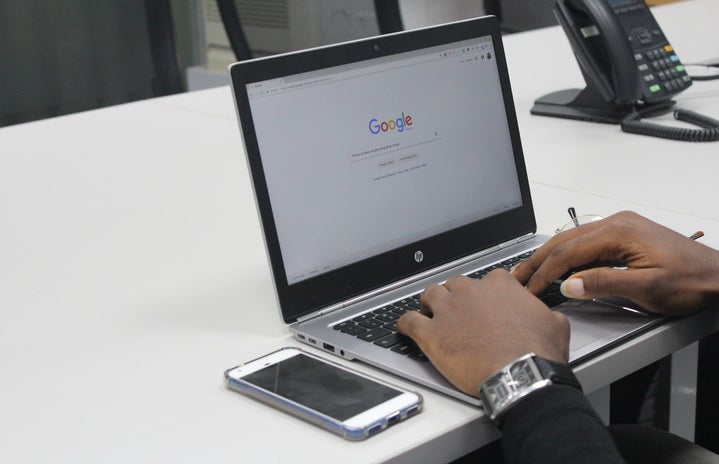“Stranger danger! Stranger danger!” We all grew up learning this phrase to remind us that we shouldn’t trust just anybody we meet in life.
Strangers are all potentially dangerous. You never truly know a person’s motive after meeting for the first time.
It may seem like common knowledge not to trust strangers. However, since the beginning of the coronavirus pandemic, people have been feeling more alone than ever in their homes, and they’re turning to strangers on the internet to feel connected in society.
Various social networks such as Yubo, Tinder and Omegle have gained tremendous popularity as a result of the quarantine put in place in March of last year.
We, as a society, have backed away from the fear of “stranger danger.” Instead, we have begun to normalize and even encourage talking to strangers on the internet.
Now more than ever, younger generations rely on the internet for school, fun and other daily activities.
Taking advantage of this surge of internet use, sex traffickers are targeting younger children and their lack of internet safety during this time.
The United Nations reports in February 2021, “The share of children among detected trafficking victims has tripled while the share of boys has increased five times in the past 15 years.”
The year 2020 breaks the record for the most reports of suspected child exploitation in one year.
NCMEC’s CyberTipline records more than 21.7 million reports, a 97.5% increase from the year 2019.
Because we use the internet for essentially everything in our daily lives nowadays, it’s easy to forget the dangers that come from being online.
With that said, it is clear that there needs to be a stronger emphasis on internet safety among children, teenagers and young adults.
One way to stay safe on the internet is to be aware of strangers on social media and dating sites.
The FBI warns, “Offenders often exploit dating apps and websites to recruit — and later advertise — sex trafficking victims.”
They are even starting to lure in labor trafficking victims by offering legitimate job offers.
“Traffickers groom victims online by offering opportunities for a better life and providing fake employment opportunities.”
In 2017, Chloe Ayling, an aspiring model, flew to Milan, Italy, under the impression that she would be doing a photoshoot.
Once she arrived, she was drugged and abducted by two men from a group of criminals from the Dark Web under an organization called The Black Death Group.
Ayling was luckily released. However, millions of people fall victim to online sexual exploitation daily.
Another way to improve internet safety is to share less information with social media. It’s easy to want to constantly update our friends and family about our current whereabouts and activities. However, strangers also have access to this information, which can put us in scary and dangerous situations.
“Online platforms make it easier for traffickers to find potential victims, especially those who post personal information, such as their financial hardships, their struggles with low self-esteem, or their family problems,” reports Homeland Security Today.
Creepy people are everywhere. It is crucial to protect your phone number, birth date, address and frequent locations from strangers. Providing access to this information allows an easy way for dangerous people to find you — or even possibly steal your identity.
Most importantly, trust your gut. If you feel that something or someone is suspicious, you are likely right.
If a person is making you feel uncomfortable, disengage from the person. You do not have any obligation to strangers on the internet. If you feel unsafe, the best thing to do is remove yourself from the situation before it can escalate.
Despite trusting the internet for our school and work, we need to remember that it is never truly safe from predators and dangerous scams.
As technology advances, traffickers also advance their techniques. They can capture you in ways that you would least expect it.
Always be aware of what is happening in the world around you, even if it’s happening online. Strangers can still cause harm despite the screen in between.


